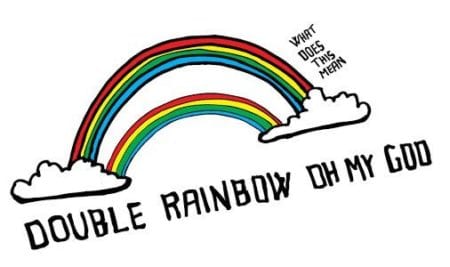On January 20th Google announced upcoming changes to YouTube, promising solutions that scale in a cross device world.
To me, the hype falls squarely in the ‘next generation insights and reporting’ part of the announcement, however disappointingly, at this stage, is just hype. In the ‘next year’, we can expect a ’new, cloud-based measurement solution’. This includes working with 3rd party measurement vendors to enable advertisers to independently measure YouTube performance.
Ok, cool?
To me, this is a really premature announcement with not a lot to excite me. When there is detail on the ease of integration and the quality of the measurement, which is always a challenge when dealing with view-based media, I’ll give it a second look. Moreover, when does Google release anything on time? With that in mind, I’ll place this in my Q4 2017 considerations bucket and move on to things that might help us leverage YouTube in the short term.
Important in the near term is the feature release to leverage Customer Match on YouTube. For any advertiser finding success with Facebook Lookalike audiences (LAL’s) beyond a 5% match radius, you should be able to mirror that success to a similar degree with Google Customer Match, and I suspect that YouTube targeting will follow suit. I’m certainly eager to see the results of tests for this new targeting option, however I recommend a few considerations before diving into the wild with GCM + YouTube.
Firstly, do you have LAL’s or Customer Match performing well on other channels? If not, this is likely a low priority from a performance perspective. Secondly, do you have video creative that has performed well on other channels? If not, again, keep this as a low priority. Conversely, if you have a history of good FB LAL performance, and/or GCM on other Google channels, who also have great video content, jump on this train and ride it! It should be a great way to narrow down soft YouTube targets. My expectation, and likely the goal of Google in this effort, is that this targeting is a good effort in filling the chasm between remarketing (best ROI) and reach/brand campaigns (worst ROI) from a performance perspective, which is a significant void YouTube needs to address.
The third feature of this ‘release’ is one that appears more tangible in that it’s listed as available ‘in coming weeks’, which is to be able to mute YouTube ads based on search performance. i.e.: if an advertiser mutes a target in paid search, the same user won’t see ads in YouTube. But wait, aren’t we already doing that? If you haven’t been, you should be. This is basically adding a control in the YouTube account to suppress converted users or a list of users on a remarketing list. If you haven’t been leveraging your GA data and/or remarketing audiences to suppress YouTube targets, you can start there today and get ahead of this feature.
Overall, this announcement was a little underwhelming due to the latent release of these features…however it is an acknowledgement of the shortfalls of the YouTube channel and that’s a good start. The most value in this release, however, is the potential halo effect of these changes. The expansion of customer match to YouTube will likely include the same capability to GSP’s etc, which are still lacking this basic functionality. Certainly the ‘cloud based measurement solution leveraging 3rd party measurement vendors’ could be very exciting and rival complex 3rd party attribution tools, but the lack of substance at this stage doesn’t leave me holding my breath. Needless to say, stay tuned for updates, but if you want to be proactive in preparation for better YouTube performance, actively test LAL’s and video assets so you have the best start possible.
Ada Pally has over 12 years of Digital Marketing experience working with companies of all sizes and verticals. Ada has worked in an agency setting, as well as in-house and as a consultant advising companies on holistic digital strategies with a focus on creating effective cross-channel digital strategies. She has worked with large teams and helped 100+ companies, from large enterprise clients, SMB’s, and startups to develop performance oriented digital programs across SEM, Social, SEO, Display, Native, Mobile, Email and Analytics. Ada is a recognized industry thought leader and has spoken at a range of conferences including Search Insider Summit and SearchFest / Engage.
Todd Mintz knows PPC…knows Social Media…knows SEO…knows Blogging…knows Domaining…and knows them all real well. He runs growth marketing for )and is also a Director & Founding Member of SEMpdx: Portland, Oregon’s Search Engine Marketing Association, and he can be found here on Twitter and Facebook.



